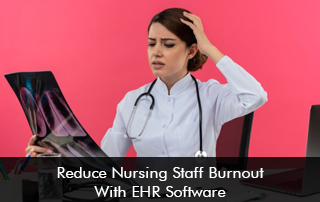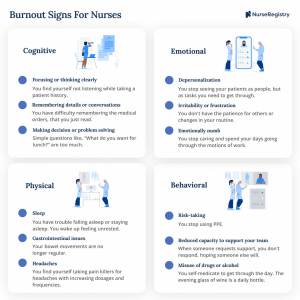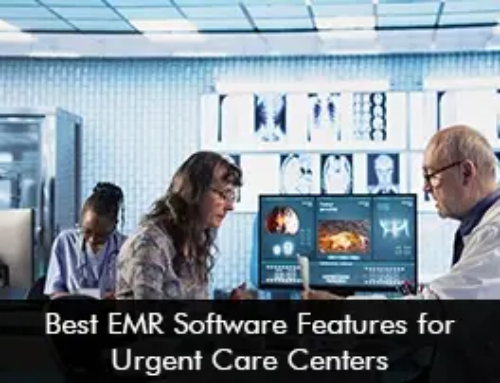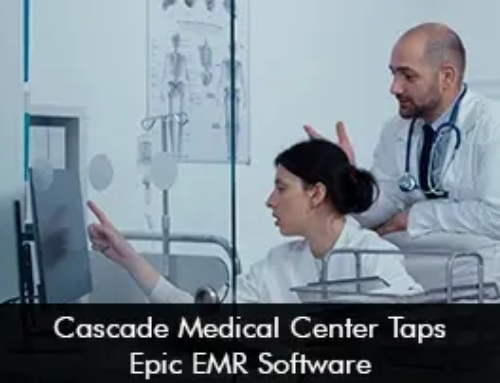Nursing is a demanding profession. Nurses face long hours, high stress, and significant emotional strain. One critical tool that can help ease their burden is Electronic Health Record (EHR) software. EHR software, when used effectively, can reduce nursing staff burnout. Here are some tips on how to leverage EHR software to make nurses’ lives easier.
EHR Software Streamlines Documentation Processes
Documentation is a significant part of a nurse’s job. It often feels overwhelming. EHR software can simplify this task. Use templates and predefined order sets. These features speed up data entry. Nurses spend less time on paperwork and more time with patients.
Implement Voice Recognition
Typing is time-consuming. Voice recognition software is a game-changer. Nurses can dictate their notes. This feature saves time and reduces the physical strain of typing. It also ensures more accurate records.
Use Clinical Decision Support
Clinical Decision Support (CDS) tools in EHR software provide evidence-based guidance. They help nurses make informed decisions quickly. CDS tools can alert nurses to potential issues. This reduces the cognitive load on nursing staff. It also improves patient outcomes.
EHR Software Automates Routine Tasks
Automation is a powerful feature of EHR. Automate repetitive tasks like medication refills and appointment scheduling. This frees up nurses to focus on more critical tasks. It reduces the risk of errors and ensures consistency.
Enhance Communication
Effective communication is crucial in healthcare. The proper software can facilitate better communication. Use messaging features to share information with colleagues quickly. Integrate with other systems to streamline information flow. This reduces misunderstandings and ensures everyone is on the same page.
Provide EHR Software Mobile Access
Nurses are always on the move. Mobile access to EHR software can be very beneficial. It allows nurses to access patient information from anywhere. They can update records in real time. This flexibility improves efficiency and reduces the need for redundant documentation.
Customize User Interface
A one-size-fits-all approach does not work for everyone. EHR software should be customizable. Tailor the user interface to fit the workflow of nursing staff. Customizable dashboards can display the most relevant information. This reduces the time spent searching for data and enhances productivity.
EHR Software Vendors Offer Training and Support
Effective use of EHR software requires proper training. Provide comprehensive training programs. Offer continuous support to nursing staff. This ensures they are comfortable with the system. It reduces frustration and increases efficiency.
Monitor Workload and Performance
Use the software to monitor workload and performance. Track key metrics like documentation time and patient load. This data can help identify areas for improvement. It also allows for better workload distribution. Monitoring these metrics helps in managing nurse burnout proactively.
Ensure System Reliability
System downtime can be frustrating. Ensure your software of choice is reliable. Regular maintenance and updates are essential. Reliable systems reduce stress and allow nurses to focus on patient care.
EHR Software Simplifies Medication Management
Medication management is a critical task for nurses. EHR software can simplify this process. Use features like medication reconciliation and electronic prescribing. These tools reduce the risk of errors. They also save time, ensuring patients receive the correct medications promptly.
Foster Collaboration
Healthcare is a team effort. EMR software can foster collaboration. Shared access to patient records ensures everyone is informed. Collaborative tools allow for better coordination of care. This leads to improved patient outcomes and reduced nurse burnout.
Promote Work-Life Balance
EHR software can support work-life balance. Use scheduling features to manage shifts effectively. Ensure fair distribution of workload. This reduces burnout and promotes a healthier work environment.
Encourage Feedback
Feedback is essential for improvement. Encourage nursing staff to provide feedback on the EMR software. Use this feedback to make necessary adjustments. It ensures the system meets their needs and is user-friendly.
Integrate with Wearable Devices
Wearable devices can be integrated with EHR software. This provides real-time patient data. It reduces the need for manual data entry. Nurses can monitor patients more effectively. This integration enhances patient care and reduces workload.
EHR Software Utilizes Patient Portals
Patient portals empower patients to manage their health. They can access their records, schedule appointments, and communicate with healthcare providers. This reduces the administrative burden on nursing staff. It also promotes patient engagement.
Focus on User-Friendly Design
EMR software should be user-friendly. Complex systems increase stress and reduce efficiency. Focus on intuitive design. Ensure the software is easy to navigate. This makes it easier for nurses to use and reduces frustration.
Prioritize Security and Privacy
Security is paramount in healthcare. EHR software must ensure patient data is secure. Implement robust security measures. This protects sensitive information and builds trust. Secure systems reduce the anxiety associated with data breaches.
Leverage Analytics
Analytics can provide valuable insights. Use EMR software to analyze data. Identify patterns and trends. This information can help improve processes and patient care. It also aids in managing nurse workload effectively.
EHR Software Supports Interoperability
Interoperability is crucial in healthcare. EHR software should integrate seamlessly with other systems. This ensures smooth information flow. It reduces the need for duplicate data entry. Interoperability enhances efficiency and reduces nurse burnout.
Encourage Continuous Improvement
Healthcare is constantly evolving. Encourage continuous improvement in the use of EHR software. Stay updated with the latest features and best practices. This ensures the system remains relevant and effective.
Facilitate Remote Monitoring
Remote monitoring is increasingly important. EHR software can facilitate this. Use telehealth features to monitor patients remotely. This reduces the need for in-person visits. It allows nurses to manage their time more effectively.
EHR Software Optimizes Workflow
Optimize workflow using EHR software. Identify bottlenecks and areas for improvement. Streamline processes to enhance efficiency. This reduces the workload on nursing staff and improves patient care.
Empower Nurses with Data
Data is powerful. EHR software provides access to a wealth of data. Use this data to empower nurses. Provide them with the information they need to make informed decisions. This reduces uncertainty and enhances confidence.
Focus on Patient-Centered Care
EHR software should support patient-centered care. Ensure the system facilitates personalized care plans. This improves patient outcomes and satisfaction. It also makes nurses’ jobs more rewarding and less stressful.









